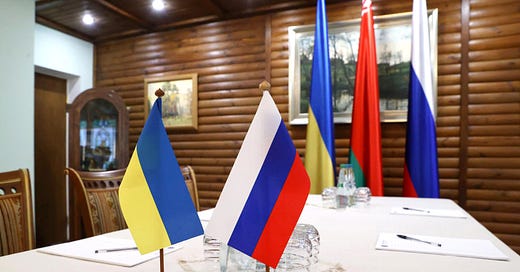The Time for Negotiation in Ukraine Has Not Come. Those in the West Who Call for Negotiations Are Playing Into Putin’s Hands.
Stronger on the military ground, Ukraine has no interest in negotiating.
It is a little music, nagging and insidious, that has been rising for a few weeks in the Western camp: the Russian-Ukrainian war has gone on long enough, it is time to negotiate. Let's not give any more “blank checks” to Ukraine, asserted the Republican congressman Kevin McCarthy, on October 18, 2022. “We urge you to make vigorous diplomatic efforts,” w…
Keep reading with a 7-day free trial
Subscribe to Sylvain Saurel’s Newsletter to keep reading this post and get 7 days of free access to the full post archives.




